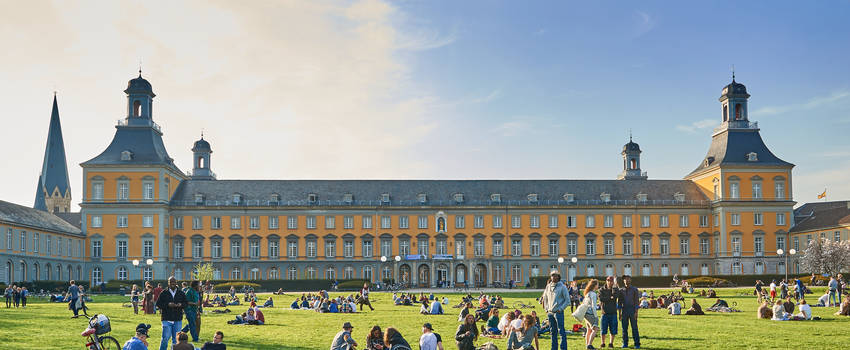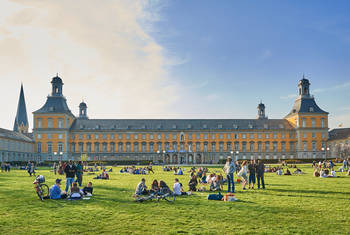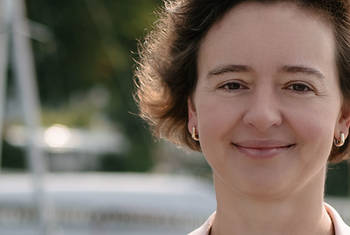Hans Martin von Gaudecker How Is the Coronavirus Pandemic Impacting Human Inequality?
Hans-Martin von Gaudecker is Professor of Economics at the University of Bonn. He is also a Research Team Leader in Structural Policy Evaluation at the Institute of Labor Economics (IZA). Having completed his PhD at the University of Mannheim, von Gaudecker has also held research fellowships at the Federal Reserve Bank of Chicago and the EIEF in Rome. His research focuses on applied microeconometrics, life-cycle behavior and labor and health economics
Area of Research
Economics
since 2019
Research Team Leader
Institute of Labor Economics (IZA)
Structural Policy Evaluation
since 2012
Professor of Economics
University of Mannheim (Universität Mannheim)
2010-2012
Post-Doctoral Researcher
University of Mannheim (Universität Mannheim)
2007-2009
Post-Doctoral Researcher
Free University of Amsterdam
2005-2007
Researcher
Mannheim Research Institute for the Economics of Aging
2003-2007
Ph.D. in Economics
University of Mannheim (Universität Mannheim)
2004-2005
Visiting Student
University College London
Institute for Fiscal Studies
1998-2003
Undergraduate Studies in Economics
Heidelberg University (Ruprecht-Karls-Universität Heidelberg)
1998-2003
Undergraduate Studies in Economics
Pontificia Universidad Católica de Chile
1998-2003
Undergraduate Studies in Economics
University of Mannheim (Universität Mannheim)
Fellowships
- Reinhard Selten Institute
- CESifo
- Netspar
- MEA-MPISOC
 © University of Bonn
© University of Bonn

University of Bonn (Rheinische Friedrich-Wilhelms-Universität Bonn)
Bonn is one of the large universities in Germany, with around 36,000 students, 550 professors, 6,500 other staff staff. It offers a wide disciplinary spectrum comprising some 200 different degree programmes, from Agricultural Science to Tibetan Studies. This diversity is what characterizes Bonn as a full-range university with a strong international orientation. In many international university rankings Bonn is placed among the 100 best universities in the world.Its academic and research profile features internationally renowned specializations in the fields of Mathematics, Physics/Astronomy, Economics, Chemistry, Pharma Research, Biosciences, Genetic Medicine, Neurosciences and Philosophy/Ethics. Other disciplines, such as Geography and Law, are of outstanding importance within the German research scene.
The Rheinische Friedrich-Wilhelms-Universität Bonn is rooted in a long tradition going back almost 200 years. It was founded in 1818 by Friedrich-Wilhelm III, the Prussian king whose name it bears. Imbued with the spirit of Wilhelm von Humboldt, the university quickly joined the circle of Germany's most distinguished universities and became a major pole of attraction for leading scholars as well as students.The list of famous professors ranges from the astronomer Friedrich Wilhelm Argelander (1799-1875), through the chemist August Kekulé von Stradonitz (1829–1896) and political economist Josef Schumpeter (1883–1950) to the philologist Ernst Robert Curtius (1886–1956) and the theologists Karl Barth (1886–1968) and Joseph Ratzinger (born 1927), now Pope Benedict XVI. Bonn's best-known students include Heinrich Heine, Karl Marx, Friedrich Nietzsche, and Konrad Adenauer.
The university is proud of a long list of award-winning scientists and scholars, with about twenty Leibniz Prize winners and around thirty ERC grantees. In the last three decades two professors have received the Nobel Prize: Wolfgang Paul (for Physics, 1989) and Reinhard Selten (for Economics, 1994). (Source: University of Bonn)
Institute
The Collaborative Research Center (CRC) TR 224 – EPoS
The Collaborative Research Center (CRC) TR 224 – EPoS is a cooperation between the University of Bonn and the University of Mannheim. Funded by the German Research Foundation (DFG), it aims to analyze and provide policy proposals that address three key societal challenges: how to promote equality of opportunity; how to regulate markets in light of the internationalization and digitalization of economic activity; and how to safeguard the stability of the financial system.
Map
It is clear that the coronaviruspandemic is having a widespread impact on people’s economic security as well as on their physical and mental health. In this video, HANS-MARTIN VON GAUDECKER considers how the crisis is affecting human inequality. Is the pandemic making the disadvantaged even worse off or is it a “great equalizer”? Von Gaudecker’s data comes from an online panel with 7000 individuals based in the Netherlands and standard regression is employed to analyze the information. The research suggests that the crisis has had most marked effects on those workers who are neither categorized as essential nor who can feasibly work from home. It also highlights the importance of keeping schools and child day care centers open in order to minimize inequality. Looking forward, focusing on potentially changing roles in child care enabled by home working, the project is seeking to identify whether the pandemic is having positive or negative effects on gender inequality.
LT Video Publication DOI: https://doi.org/10.21036/LTPUB10870
Labour Supply During Lockdown and a “New Normal”: The Case of the Netherlands
- Hans Martin von Gaudecker, Radost Holler, Lena Janys, Bettina Siflinger and Christian Zimpelmann
- Published in 2020









